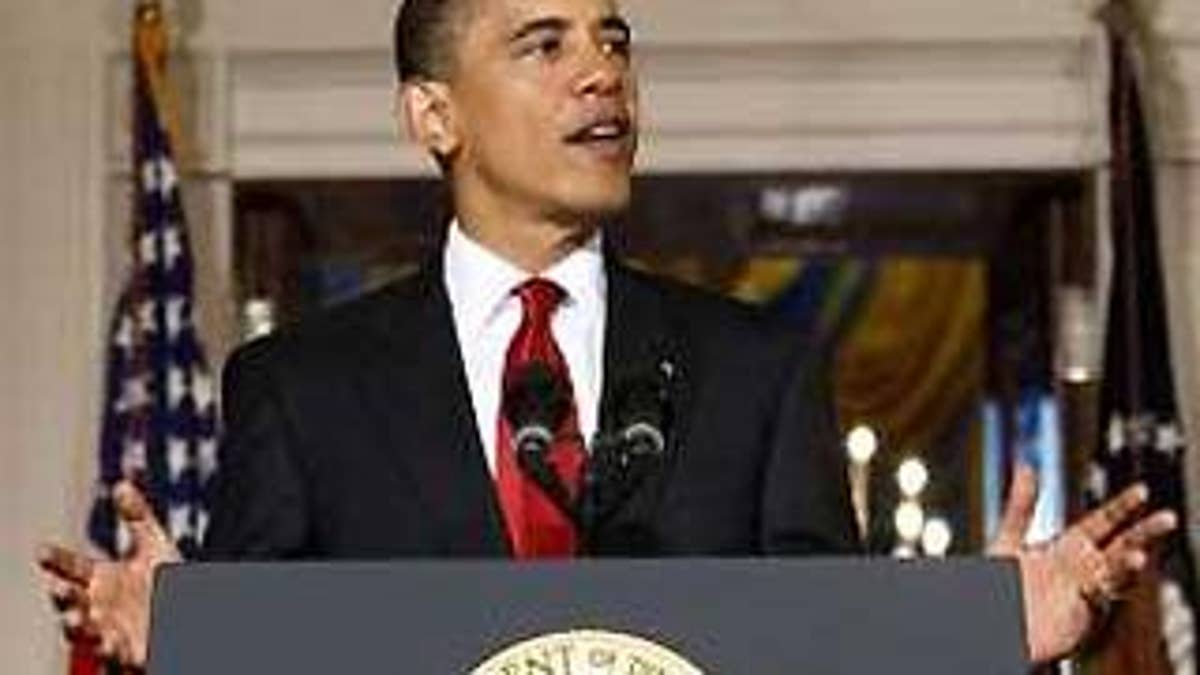
President Obama announced Monday a plan to prevent U.S. companies using offshore banks to deferr tax payments, saying that the effort to "shelter" money creates an unfair advantage to U.S. companies and amounts to evasion.
The president also called for more transparency in bank accounts held by Americans in tax havens such as the Cayman Islands.
"The way to make American businesses competitive is not to let some citizens and businesses dodge their responsibility, while ordinary Americans pick up the slack. Unfortunately, that's exactly what we're doing," Obama said.
"If financial institutions won't cooperate with us, we will assume that they are sheltering money in tax havens and act accordingly," he continued.
Under the plan, companies would not be able to write off domestic expenses for generating profits abroad. The goal is to reduce the incentive for U.S. companies to base all or part of their operations in other countries.
The current law, Obama said, "says you should pay lower taxes if you create a job in Bangalore, India, than if you create one in Buffalo, New York. "
Obama said that his plan would generate $210 billion in new taxes over 10 years and "make it easier" for companies to create jobs at home. Over a decade, $210 billion would make a modest dent in the federal deficit, expected to be $1.2 trillion in 2010.
He said the government also is hiring nearly 800 new tax agents "to detect and pursue American tax evaders abroad."
The U.S. Chamber of Commerce issued a statement saying that changing the provisions would hurt job prospects.
"The United States is the only major industrialized country which double taxes the overseas earnings of our companies. Since other countries don't subject their companies to double taxation, U.S. companies need deferral to stay competitive in the global marketplace," said the chamber's chief economist Marty Regalia.
"When you limit deferral, you limit the ability of U.S. companies to compete, you impede growth in the U.S. economy, and you cause the loss of jobs -- both at the companies directly impacted and companies in their supply chains," he said.
Congress may resist significant portions of Obama's plan, saying it hurts U.S. business.
"I certainly support reforming the tax system and agree with the President that we must crack down on tax evasion through the use of tax shelters or abuse of offshore bank accounts. But as to the larger part of his proposal: I cannot endorse a plan that gives preferential treatment to foreign companies at the expense of U.S.-based companies and the 52 million people they employ," said Senate Minority Leader Mitch McConnell, R-Ky.
Senate Finance Committee Chairman Max Baucus, D-Mont., who supports the president's overall intention, said in a statement that more study is needed to see how American companies would be influenced by proposals that would modify companies' ability to defer tax on foreign earnings, foreign tax credits, classification of foreign businesses and offshore tax havens.
"I want to make certain that our tax policies are fair and support the global competitiveness of U.S. businesses. These policies must be designed to encourage economic growth and create good-paying jobs Americans need right now," he said.
The Associated Press contributed to this report.




